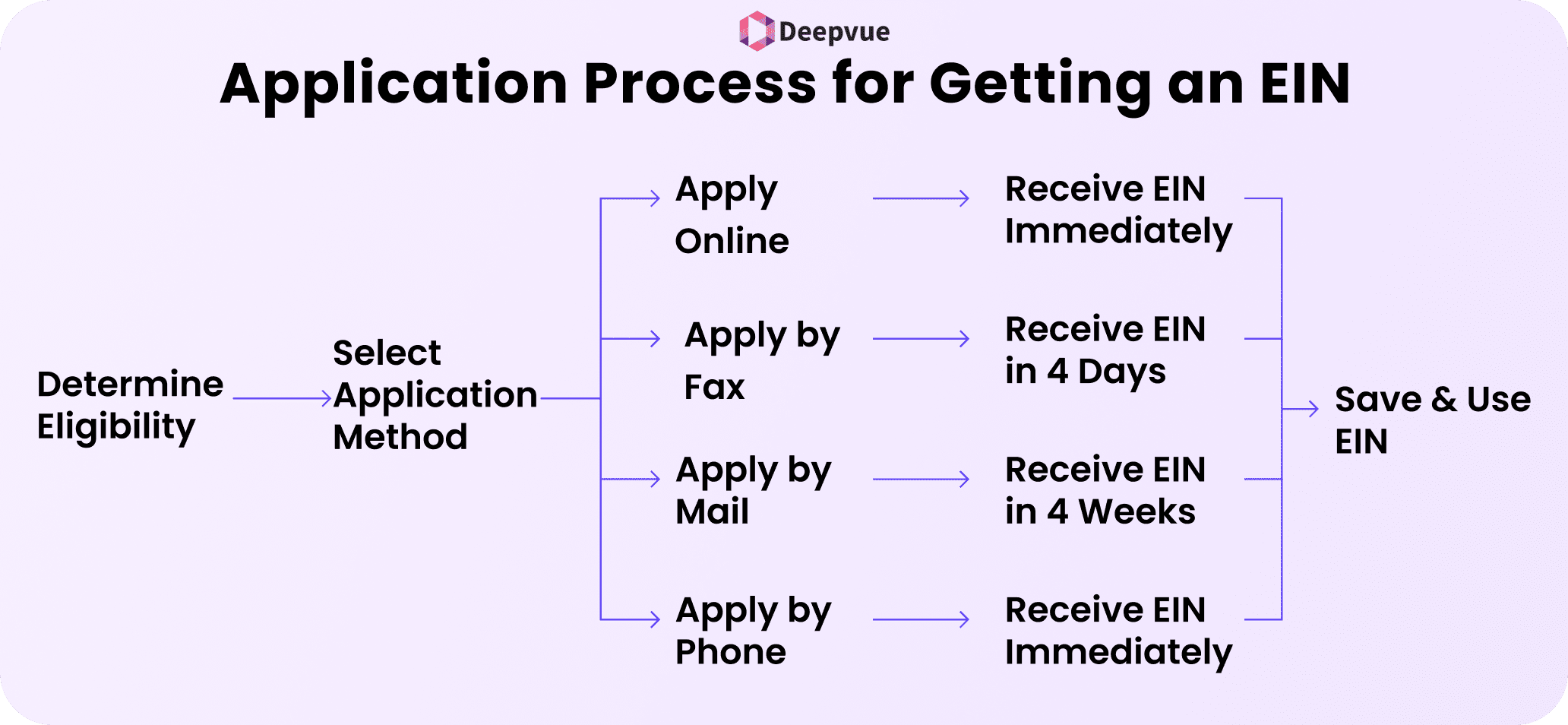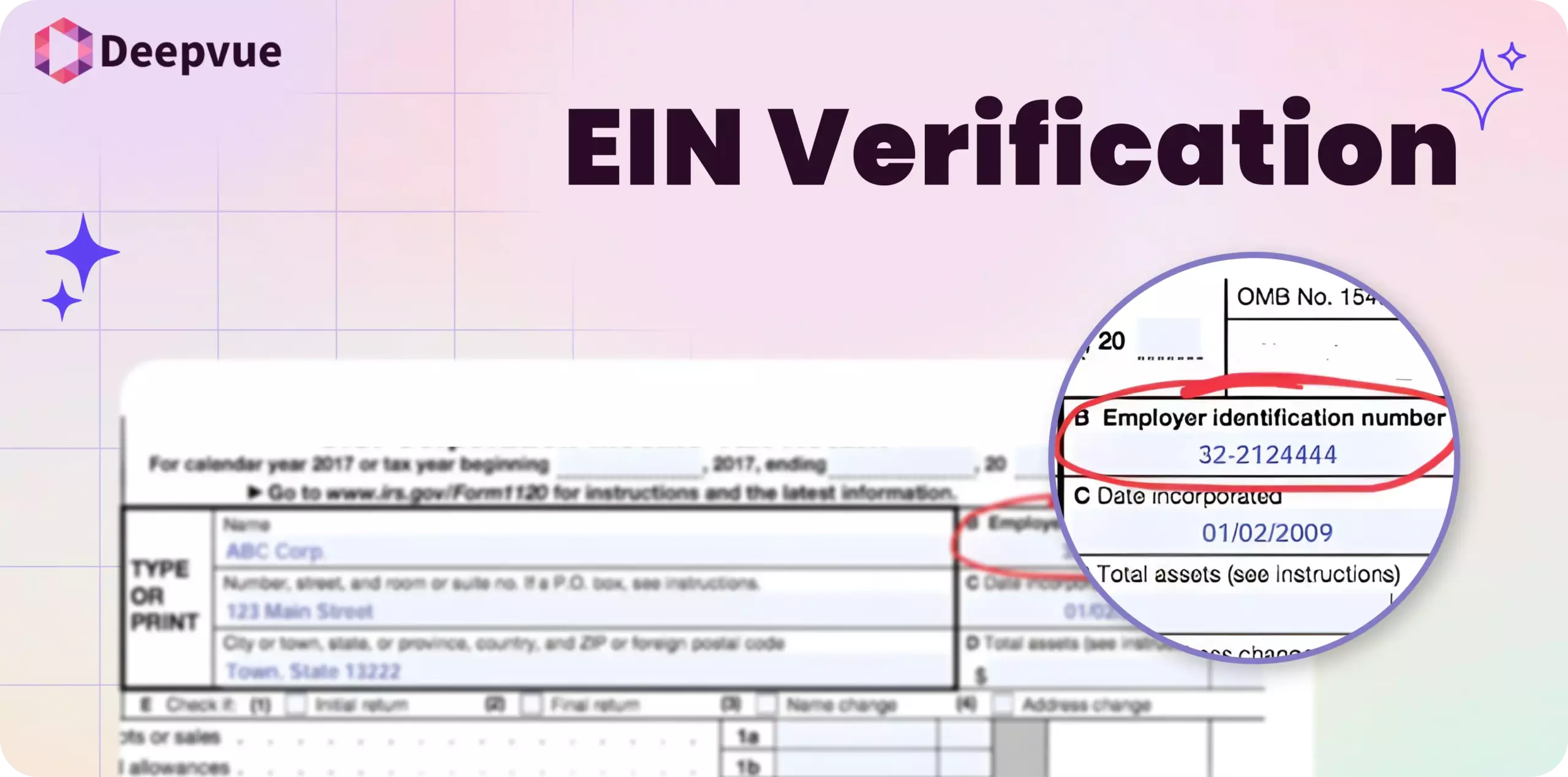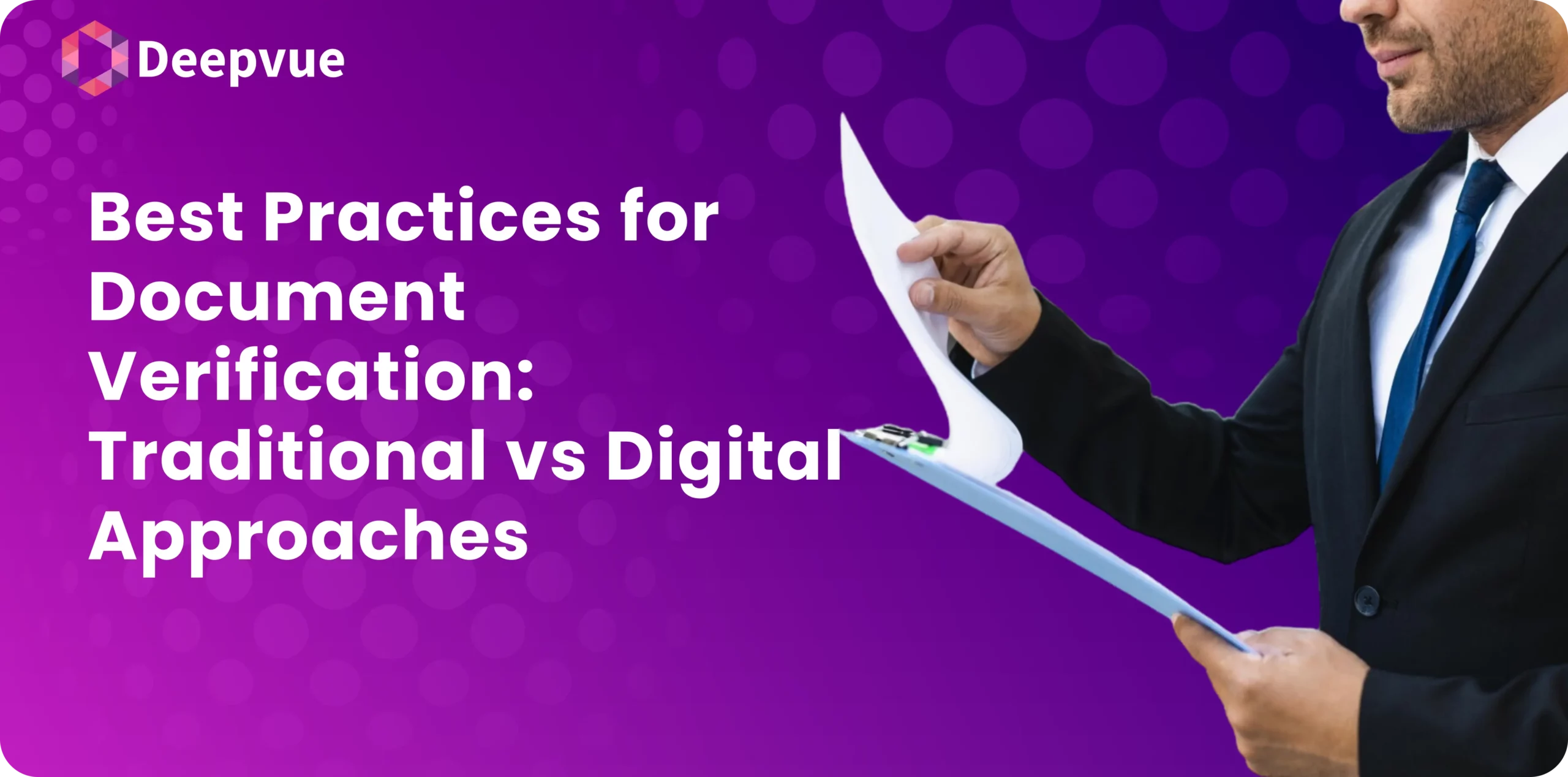Verifying an Employer Identification Number (EIN) is a vital process for companies, banks, and individuals handling tax, employment, or financial dealings. The EIN provided by the Internal Revenue Service (IRS) acts as a business’s unique identifier, the equivalent of a Social Security Number (SSN) used for individuals. Validating that an EIN is correct prevents fraud, promotes tax compliance, and verifies the authenticity of a business entity.
Here, we will guide you through how to verify an EIN, the most important reasons why you need to, and the optimal ways to achieve accuracy.
What Does EIN Mean?
Every company or organization is provided with an EIN so that the revenue department can quickly identify it. To open a business bank account, apply for loans, hire staff, or set up payroll services, a company also needs an EIN. This number has no expiration date, however, if a business entity needs to be dissolved it cannot be reused again. The responsible party needs to send a letter to the Internal Revenue Service (IRS) providing business details and the reason for the change or cancellation. This nine-digit number is formatted as XX-XXXXXXX.
Who Needs an Employer Identification Number (EIN)?
- Businesses with Employees: Any company that employs workers is required to have an EIN for payroll tax purposes.
- Corporations and Partnerships: All C-corp and S-corp corporations and partnerships must obtain an EIN.
- Sole Proprietors With Employees or Retirement Plans: Sole proprietors are required to have an EIN if they employ someone or sponsor a Keogh or solo 401(k) retirement plan.
- LLCs (Limited Liability Companies): Single-member LLCs require an EIN if they have workers or choose to be taxed as corporations. Multi-member LLCs always require one.
- Nonprofit Organizations: Charities, churches, and other exempt organizations require an EIN for tax purposes.
- Trusts & Estates: Estates that administer a deceased individual’s property and certain trusts require an EIN.
- Businesses Filing Excise or Employment Taxes: If a business pays excise taxes (e.g., alcohol, tobacco) or employment taxes, it must have an EIN.
- Self-Employed Individuals with Specific Tax Needs: Freelancers or independent contractors might need an EIN if they establish a business entity.
Importance of Obtaining an EIN for Your Business
Obtaining an Employer Identification Number (EIN) is significant for businesses because it is a special number for tax and legal identification. The EIN, which the IRS issues, is required for businesses that employ people, are corporations or partnerships and are required to file specific tax returns. EIN number verification keeps business and personal money separate, and this allows for accurate reporting of taxes as well as compliance. An EIN is also needed for opening a business checking account, loans, and establishing business credit.
Also, EIN verification keeps personal Social Security Numbers (SSNs) from being used for fraud and identity theft by substituting with the EIN instead. Even sole proprietors find it better to have an EIN as it increases credibility for vendors and customers. Overall, an EIN makes tax filing easier ensures compliance with the law, and enhances business legitimacy.
Application Process for Getting an EIN

- Determine Eligibility: You must have a valid Taxpayer Identification Number (SSN, ITIN, or EIN) and be applying for a business entity located in the U.S. or U.S. territories.
- Select an Application Method: You may apply online, by mail, fax, or phone (for foreign applicants).
- Apply Online: The quickest way. Fill out the application on the IRS website, and get your EIN right away if your business is in the U.S. or U.S. Territories.
- Apply by Fax: Fax the filled-out Form SS-4 to the IRS. If valid, your EIN will be returned within 4 business days, if you provide your fax number.
- Apply by Mail: Send the completed Form SS-4 to the IRS. Processing takes approximately 4 weeks.
- Apply by Phone (International Applicants): Dial 267-941-1099 to obtain an EIN immediately, Monday through Friday, 6 a.m. to 11 p.m. ET.
- Save & Use Your EIN: Keep the EIN confirmation notice on hand. Use the EIN for tax reporting, business bank accounts, employment of employees, and business licenses.
Methods to Verify Your EIN
- Verification State Secretary of State Business Directories: Most states have online business registries where you can look up a company’s EIN when available. Go to the Secretary of State website for your state and search by business name or by registration information.
- Using Credit Bureaus for Verification: Credit bureaus such as Experian, Equifax, and Dun & Bradstreet can potentially have EIN data for registered businesses. If you have a valid reason, you can ask for a business credit report, which in many cases will contain the EIN.
- Employing Expert Services such as Deepvue: Platforms such as Deepvue and other EIN verification online sites have EIN search tools and business verification information. These services collate private and public business data to confirm EINs effectively.
Steps to Retrieve a Lost EIN

- Find your EIN on previous tax returns, bank statements, or formal IRS letters.
- Call the IRS Business & Specialty Tax Line at 800-829-4933 (Monday–Friday, 7 AM–7 PM local time).
- Provide your business name, personal details, and other identifying information to confirm ownership.
- If you used your EIN to open a business bank account, your bank may have a record of it.
- If you received an EIN from the IRS, locate Form CP 575 (EIN confirmation notice).
- If you applied for an EIN online, log in to the IRS website or your accountant’s records.
- If an accountant helped set up your EIN, they may have a copy.
- EINs are unique and permanent; applying for a new one could cause tax and legal issues.
Requirements for EIN Verification and Application
- The applicant must have a valid Taxpayer Identification Number (SSN, ITIN, or another EIN).
- A single person must be designated as the responsible party (must be an individual, not an entity).
- Provide the legal name, trade name (if applicable), and business address.
- Identify the type of entity (e.g., Sole Proprietorship, LLC, Corporation, Partnership, Nonprofit).
- Identify the purpose of requesting an EIN (for example, opening a new business, adding employees, banking reasons).
- Describe the core business activity and the services/products delivered.
- Name the number of workers anticipated in the first year.
Common Issues in EIN Number Verification
- The EIN must follow the correct format (XX-XXXXXXX). Any deviation, like missing or extra digits, will result in an error during verification.
- If the name or address on file with the EIN doesn’t reconcile with the records that the IRS maintains, EIN verification will fail.
- Newly assigned EINs might not be available in the verification system right away. It may take 48 hours for new EINs to be processed and recognized.
- EINs for closed, dissolved, or inactive companies will not be confirmed.
- If the name or address of the business has changed but not updated with the IRS, the verification system can report inconsistencies.
- Due to backlogs or delays or IRS processing, EIN records are not updated in real-time, resulting in verification issues of short duration.
Conclusion
EIN verification is a significant task that confirms the legitimacy of businesses, avoids fraud, and ensures tax compliance. Whether it is a business entity, lender, or supplier, the verification process is to confirm that the EIN provided by a company is accurate and valid.
For businesses looking for an easy and efficient solution, our EIN Verification API offers an effective means of real-time EIN verification. With our API, you can verify EINs automatically in your system. The API fits smoothly into your current processes, offering a fast and trustworthy solution to verify all EINs are valid and accurate.
Additionally, our EPFO API simplifies the verification of Employee Provident Fund (EPF) details, ensuring smooth and accurate employee management and compliance with labor regulations. For any inquiries or to learn more about our APIs, feel free to visit our Contact Page, and our team will be happy to assist you.
FAQs
What is an EIN?
An Employer Identification Number (EIN) is a special nine-digit number the IRS assigns to businesses for tax reporting and identification. It acts as a Social Security Number (SSN) but for corporations.
Why is EIN verification necessary?
Confirming an EIN ensures a business is legitimate, prevents fraud, and is required for tax reporting, financial transactions, and regulatory compliance.
Do sole proprietors need an EIN?
Sole proprietors don’t necessarily need to have an EIN unless they have employees, a business bank account, or make specific tax filings. Otherwise, they are able to use their SSN for taxation.
Can an EIN expire or be reused?
EINs do not have expiration dates and are specific to each company. An EIN might be required again if a business entity has changed, e.g., sole proprietorship to LLC.
Can I find any company’s EIN on the internet?
EINs for public corporations and nonprofits can be obtained from the SEC EDGAR database and the IRS Tax-Exempt Organization Search. Private company EINs are not available to the public.








